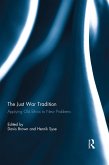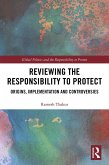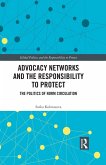This collection examines the role of the just war tradition and its criteria in solving pressing present-day challenges. In particular, it deals with three types of challenges to world public order. One is anticipatory self-defense, in which one state attacks another to pre-empt or prevent an attack on itself, as the United States claimed in relation to Iraq in 2003. The second challenge is humanitarian intervention, in which one state attacks another to stop gross, large-scale violations of human rights, as NATO claimed to be doing on behalf of Kosovo in 1999. Both practices may erode world public order, given the normative strength of Article 2(4) of the UN Charter prohibiting the threat or use of force against other states. However, both practices pose dilemmas, in that they also
preserve world public order by not allowing impunity for human rights abusers or the misuse of international law to the advantage of genuine aggressors. The third challenge is the execution of warfare in a new geopolitical environment characterized by new technologies and asymmetry of belligerents. The chapters in this book, written from a variety of disciplinary perspectives, turn to the just war tradition to attempt to resolve these tensions.
This book was based on a special issue of the
Journal of Military Ethics.
Dieser Download kann aus rechtlichen Gründen nur mit Rechnungsadresse in A, B, BG, CY, CZ, D, DK, EW, E, FIN, F, GR, HR, H, IRL, I, LT, L, LR, M, NL, PL, P, R, S, SLO, SK ausgeliefert werden.









